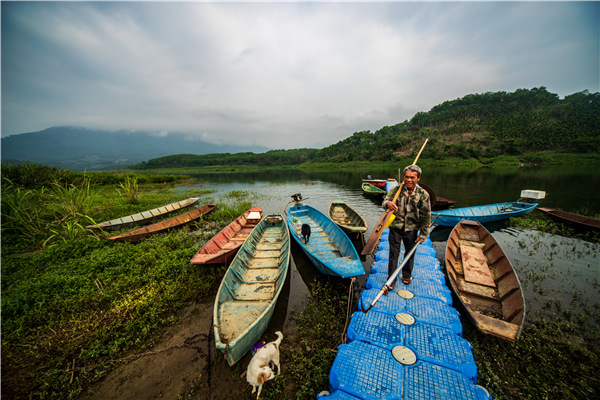 |
|
A local fisherman heads back home. [Photo by Li Xinghuang/For China Daily] |
"Better communication with the outside world has also provoked new ideas for development among the locals. We tapped the fine ecological resources and environment as an advantage to develop tourism, encourage the farmers to raise chicken, geese and black sheep, farm fish and shrimp, open small household restaurants with Li-style foods to feed visitors while continuing the traditional growing of betel nut and rubber trees," says Fu.
He says the local government provided free poultry seedlings to the poorer families, and arranged about 200 night-school training classes to teach the local people farming and poultry cultivation techniques in the past four years.
Chen Shuwen and Ou Yujiao, a couple who were not able to afford school fees for their two children several years ago, have become well-off and are leaders in raising wild pheasants. They earned 300,000 yuan last year and have organized a cooperative for 34 of the once poverty-stricken households, leading them out of poverty.
"I have never imagined that happiness comes so quickly. We eat better food and wear better clothes and we are all very grateful for what the support teams sent by the local governments have done for us," says Chen Fenglian, a Li woman and mother of three children.
Though an ordinary farmer, she has a busy schedule every day. She runs a five-room homestay, serving occasionally as a guide for tourists, grows betel nut trees on a piece of land that is about 2.7 hectares in size with her husband and picks herbal plants in the mountains to make a special tea that sells well online.